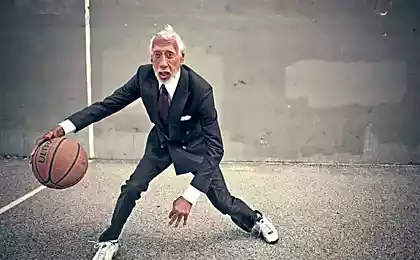833
10 theories that could change your idea of success
It does not have to be a genius to something dobitsyaDesyatiletiyami sociologists have tried to understand why some people succeed while working in their fields, while others are not. On this basis, there were a number of theories. And if you are aiming to achieve a maximum life, then perhaps some of these theories will be useful to you.
1. Weakness can be vygodnaVozmozhno you've heard of Malcolm Gladwell, who wrote about his research success. In the book "David and Goliath" Gladwell examines the concept of weakness and argues that weak actually have a significant advantage over the so-called Goliaths. When the "Goliaths" are winning, it most often occurs because the weak Goliath played by the rules. But if the "David" Look at the situation from a different angle, and will come to it completely on the other side, then it will have a much better chance of winning.
In the biblical story Goliath expected melee. David went to fight in a different way: took his sling and threw a stone at the head of Goliath. It was not against the rules, and David won because he refused to follow the tactics of Goliath.
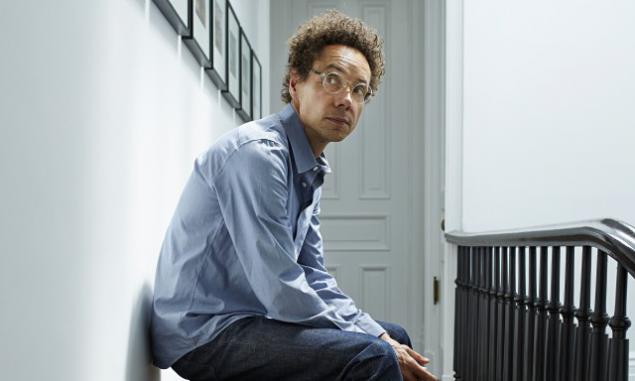
In history there are many examples of superior enemy has suffered a defeat because it was used against innovation. 300, in the Battle of Thermopylae successfully held off Persian army. Lawrence of Arabia Bedouins successfully conducted across the desert to attack the Turks. Innovation and thinking outside the box can be very useful. So if everything against you, you may just have to stop playing the standard rules and understand their strengths.
2. Barriers - an integral part of life obschestvaV encountered many obstacles, which are very difficult to overcome. For example, an obstacle may be the time and place of your birth.
In his book, Gladwell cites the example of hockey players selected for the NHL.
As children, all young players born in the same year, playing in the same division. But if you compare the eight-player, born on January 1, with eight player born on 31 December of the same year, the differences are significant.
The player born in January, there is available an additional year to grow and develop, and therefore it can be faster, stronger and a better player, born in December.
And when it comes time to recruit players for teenage teams, to get those who are older. This cycle will continue for a long time, and it all comes down to the fact that the players who were born in December, will always be in the position of catching up.
This clearly shows that in life there is always a problem, but at the same time it gives an interesting idea: and if in youth hockey league to create two? One for children born in the first half, the second - for those born in the second? Perhaps this will radically change the rules of the game and double the number of great players.
Hockey - is not the only area in which there are strict time limits. For example, a school that can lay the foundation for success, too, is structured in such a way that children born in the early years, the chances of success much more than those who were born at the end of the year. What would happen if school children were recruited more than once a year, and every six months?
3. No one succeeds in odinochku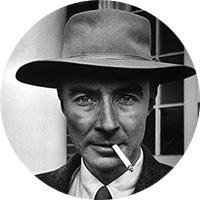
Of course, it would be nice to succeed simply because we worked long and hard. But life does not happen. We always need help and support of friends, family and teachers. Then we need employers and other key figures who will give us a chance to continue to work in your chosen field.
To illustrate this point, Gladwell tells the story of two geniuses - Langane Christopher and Robert Oppenheimer.
Oppenheimer everyone knows as the "father of the atomic bomb," and that's Langane few have heard.
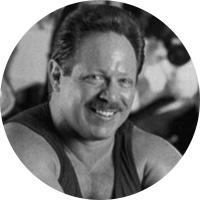
Christopher Langan was born in 1952, his IQ - between 195 and 210, which is higher than that of Einstein and Stephen Hawking. But he is not teaching physics at Harvard. He lives on a ranch in Missouri. Although the ranch is not bad, it is rather strange occupation for one of the smartest people on the planet.
Gladwell points out that these people grew up in two different social environments. Langan was born in a poor family and studied in public schools, where all of its endowments were indifferent. After school he went to college, who soon had to quit because of the fact that the family started having problems with money.
After a year of construction worker and fireman Langan enters the University of Montana. Soon after his car broke down, so he could not get to the place of study time. Christopher asked to be transferred to evening classes - the only way he could keep up with classes, but the university refused. Langan more and more disappointed in life and in the end it gave up.
To a man has been successful, its interests must be encouraged and endowments - to develop, especially at a young age h4> A Oppenheimer, by contrast, grew up in an environment where the gift strongly cultivated . From an early age he received only the best education. While studying at Cambridge, he once tried to poison one professor who is very jealous. He was caught, but it was limited to a trial period, he continued his studies.
Hard work and acquired in the course of this work experience is quite can offset the advantages of high IQ h4> Sociologists conducted a test that was similar to the assembly of the puzzle. We had to make a bet on a specific horse. Subjects were "fed" a very small piece of information about horses, and on the basis of fragmentary knowledge and had to choose a potential winner.
the practice should be aimed at improving the performance of anything specific; it must be repeated, and continuous feedback at this stage is crucial; More it must take a lot of effort, either physical or mental.
Consciously practice is important because repetition of any action gradually makes you feel more comfortable during their implementation.
When you exercise, you simply repeatedly performing the same task in a different setting. Practice will certainly be difficult, as it is the only way to improve something. And if it will be easy all the time, you'll never get out of your comfort zone and never outgrow any of your problem.
9. Year of study in the third grade - the most important in zhizni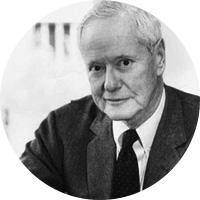
Sociologist Robert Merton introduced the concept of "Matthew Effect" in 1968. In simple terms, the basis of the effect on the idea that the rich are getting richer, and the poor - poorer.
The reason for this phenomenon, according to experts, to be found in the third grade of elementary school.
The year in which the child went to the third grade, may be crucial for him. In fourth grade learning models are changing, so it is very important that for the fourth class of the children were beginning to read and learn on their own.
Those who do not have these skills, eventually start to avoid reading and fall behind in their studies. But in order to move the school further, the learning process has to be complicated, and in high school Study will require significant efforts. And if the student is already in fourth grade began to lag, in the future this gap will only increase. Children who are in the third grade to learn how to read, continue to do so forever. Children who are falling behind, will continue to lag behind.
10. Do you have an amazing potentsialSrednestatistichesky person can remember a sequence of seven or nine numbers. After that, it becomes difficult to remember the numbers in the correct order. Researchers at Carnegie Mellon University decided to find out whether a person with an average level of intelligence to overcome the barrier of nine digits, if the train starts.
One subject trained to memorize the numbers two or three times a week, and did it for two years. He was able to memorize 82 digits. Another subject could remember 102 numbers. After this study was completed, and the researchers found that the subjects with the help of constant training could surpass those who stated that they had a photographic memory.
With these tests, experts also discovered a phenomenon they called "significant potential ordinary adults", and this potential can miraculously change through constant practice. Their research demonstrated that even the most ordinary people have the opportunity to become better, to challenge themselves.
via www.toptenz.net/10-theories-that-will-change-what-you-know-about-success.php
1. Weakness can be vygodnaVozmozhno you've heard of Malcolm Gladwell, who wrote about his research success. In the book "David and Goliath" Gladwell examines the concept of weakness and argues that weak actually have a significant advantage over the so-called Goliaths. When the "Goliaths" are winning, it most often occurs because the weak Goliath played by the rules. But if the "David" Look at the situation from a different angle, and will come to it completely on the other side, then it will have a much better chance of winning.
In the biblical story Goliath expected melee. David went to fight in a different way: took his sling and threw a stone at the head of Goliath. It was not against the rules, and David won because he refused to follow the tactics of Goliath.

In history there are many examples of superior enemy has suffered a defeat because it was used against innovation. 300, in the Battle of Thermopylae successfully held off Persian army. Lawrence of Arabia Bedouins successfully conducted across the desert to attack the Turks. Innovation and thinking outside the box can be very useful. So if everything against you, you may just have to stop playing the standard rules and understand their strengths.
2. Barriers - an integral part of life obschestvaV encountered many obstacles, which are very difficult to overcome. For example, an obstacle may be the time and place of your birth.
In his book, Gladwell cites the example of hockey players selected for the NHL.
As children, all young players born in the same year, playing in the same division. But if you compare the eight-player, born on January 1, with eight player born on 31 December of the same year, the differences are significant.
The player born in January, there is available an additional year to grow and develop, and therefore it can be faster, stronger and a better player, born in December.
And when it comes time to recruit players for teenage teams, to get those who are older. This cycle will continue for a long time, and it all comes down to the fact that the players who were born in December, will always be in the position of catching up.
This clearly shows that in life there is always a problem, but at the same time it gives an interesting idea: and if in youth hockey league to create two? One for children born in the first half, the second - for those born in the second? Perhaps this will radically change the rules of the game and double the number of great players.
Hockey - is not the only area in which there are strict time limits. For example, a school that can lay the foundation for success, too, is structured in such a way that children born in the early years, the chances of success much more than those who were born at the end of the year. What would happen if school children were recruited more than once a year, and every six months?
3. No one succeeds in odinochku

Of course, it would be nice to succeed simply because we worked long and hard. But life does not happen. We always need help and support of friends, family and teachers. Then we need employers and other key figures who will give us a chance to continue to work in your chosen field.
To illustrate this point, Gladwell tells the story of two geniuses - Langane Christopher and Robert Oppenheimer.
Oppenheimer everyone knows as the "father of the atomic bomb," and that's Langane few have heard.

Christopher Langan was born in 1952, his IQ - between 195 and 210, which is higher than that of Einstein and Stephen Hawking. But he is not teaching physics at Harvard. He lives on a ranch in Missouri. Although the ranch is not bad, it is rather strange occupation for one of the smartest people on the planet.
Gladwell points out that these people grew up in two different social environments. Langan was born in a poor family and studied in public schools, where all of its endowments were indifferent. After school he went to college, who soon had to quit because of the fact that the family started having problems with money.
After a year of construction worker and fireman Langan enters the University of Montana. Soon after his car broke down, so he could not get to the place of study time. Christopher asked to be transferred to evening classes - the only way he could keep up with classes, but the university refused. Langan more and more disappointed in life and in the end it gave up.
To a man has been successful, its interests must be encouraged and endowments - to develop, especially at a young age h4> A Oppenheimer, by contrast, grew up in an environment where the gift strongly cultivated . From an early age he received only the best education. While studying at Cambridge, he once tried to poison one professor who is very jealous. He was caught, but it was limited to a trial period, he continued his studies.
It's amazing how two brilliant men went totally different roads, and all this only because of the support they received. In this Langan was virtually no support, while the Oppenheimer virtually committed the murder, but escaped with only slight shock. The lesson is that to people achieved success, its interests must be encouraged and endowments - to develop, especially at a young age.
4. IQ pereotsenivayutEto just seems that the business world is only smart people become successful. People with a high IQ really more opportunities, but it does not mean that intelligent people are more successful. In many areas the link between success and intelligence is either very weak or it does not exist.
Intelligence - something very complex and multifaceted, but for some reason, society continues to measure it with the IQ-tests, school grades and the results of exams. However, this method does not account for critical thinking skills and emotional intelligence.
Hard work and acquired in the course of this work experience is quite can offset the advantages of high IQ h4> Sociologists conducted a test that was similar to the assembly of the puzzle. We had to make a bet on a specific horse. Subjects were "fed" a very small piece of information about horses, and on the basis of fragmentary knowledge and had to choose a potential winner.
Sociologists have found that people with low IQ test results are much better. If a person with a high IQ, and passed the test successfully, then this result was observed for a short time.
A person with a high IQ perform new tasks better than a man with a low IQ. At the same time, people with low IQ tend to perform better than the already known problem of trying to achieve perfection. And during the long practice begin to perform the task at about the same level as the person with a high IQ.
Thus, the hard work and acquired in the course of this work experience can quite compensate for the advantages of a high IQ. It is for this reason that a high IQ can not be a factor, due to which some people are more successful than others.
5. The name has znachenieImya - it is one of the factors on which we can not influence, but which seriously affects our lives.
Studies show that as the name may help you in your life, and harm.
One of the theories says about an interesting phenomenon called "nominative determinism", which boils down to the fact that your name affects a way of life and the profession you choose.
Probably the best example of nominative determinism can serve as Usain Bolt. People tend to like things that remind them of themselves. For example, someone with the last name Smith, likely more willing to enter into a marriage with another Smith. Usain Bolt became interested in running, perhaps it is because his name is pronounced very quickly.

When the coach chooses which of the runners it cook, whom he subconsciously choose? Man named Usain Bolt or Steve Melassiz? Your name can have a huge impact on the way people treat you.
Names can also indicate social status, and the teacher in the school understand that. Some of them believe that it is not necessary to spend time on children, whose names indicate a low socio-economic status. This may be the beginning of the problems continuing throughout life, when the child does not receive the normal knowledge simply because the teachers do not like his name.
Those who engaged in hiring, often appear prejudices against people with "ethnic" sounding names. All this is worth bearing in mind, choosing a name for their child.
6. geeks not suschestvuet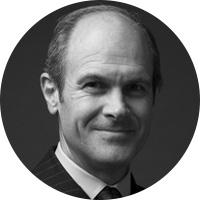
Geoffrey Colvin in his book "The talent overvalued" states that no child prodigies in fact, does not happen. He argues is that no one is born a talented beginning, and all the great people are just regular practice, bringing their skills to perfection.
When people say that gifted people exist, they are usually taken as an example of Mozart and Tiger Woods. But in fact, these two - very experienced professionals, with was not always so. Mozart's father was a music teacher. He personally taught by Mozart, not long ago was three years, after which Wolfgang started with other teachers. By the time he was 14 he wrote his first opera, he has over 9 years in music, and he did it every day.
It was not until 17 years, and after graduation he became a pianist. Thus, at the time when Mozart was 25 years old, and he created his first masterpiece, he studied music every day for 22 years.
As for the argument that he wrote music even as a child, so in any of the early work is not traced his handwriting. Wolfgang's father earned his living by speculating on the fact that his son and sister were child prodigies, so it is likely that the elder Mozart wrote all those things himself.

As for Tiger Woods, his father was a former coach and a real golf fanatic. He started coaching his son, when the latter was 7 months, giving him a stick in the hands of the clock and watch making, the way he plays. And in childhood and adolescence Tiger constantly trained, often with real professionals. When he was 19 he got into the senior team, he has been playing golf for 17 years.
7. Theory of 10,000 chasov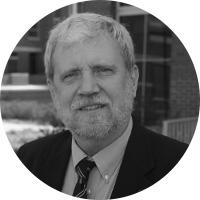
A professor from the University of Colorado on behalf of Anders Eriksson decided to find out what separates the professionals from the amateurs. In 1993 he published a paper in which he stated that the practice of lovers spend an average of 4000 hours, while the professionals are trained at least 10 000 hours.
In addition to Mozart and Tiger Woods, there is another good example of people who have worked 10,000 hours. This group The Beatles. Before becoming famous, they are two and a half years on a daily basis were in Hamburg, these performances lasted from 8 to 12 hours. It was at this time they have developed their signature sound.
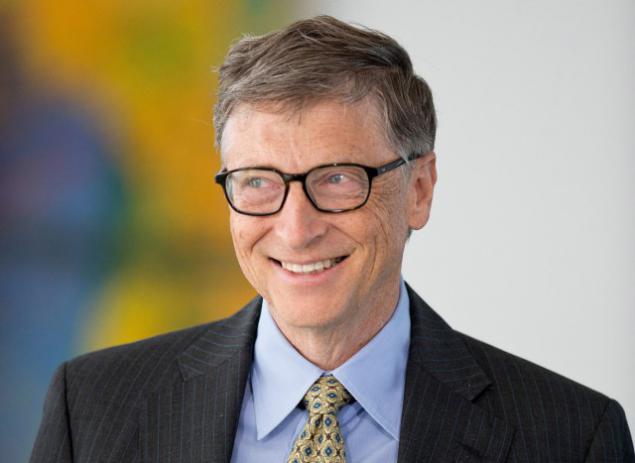
You can also recall that Bill Gates at school spent more time at the computer than any other student. It was then that he began to work out their 10,000 hours.
Although now there is debate whether there is a rule of 10 000 hours, or it is only a theory, many experts agree that the large number of people who are considered great today, there are at least 10,000 hours of practice.
8. Conscious praktikaEsli no one is born talented and certainly requires 10,000 practices, how to spend those hours with the greatest benefit?
One theory proposes to do what sociologists call "deliberate practice." In fact, several important elements:
the practice should be aimed at improving the performance of anything specific; it must be repeated, and continuous feedback at this stage is crucial; More it must take a lot of effort, either physical or mental.
Consciously practice is important because repetition of any action gradually makes you feel more comfortable during their implementation.
When you exercise, you simply repeatedly performing the same task in a different setting. Practice will certainly be difficult, as it is the only way to improve something. And if it will be easy all the time, you'll never get out of your comfort zone and never outgrow any of your problem.
9. Year of study in the third grade - the most important in zhizni

Sociologist Robert Merton introduced the concept of "Matthew Effect" in 1968. In simple terms, the basis of the effect on the idea that the rich are getting richer, and the poor - poorer.
The reason for this phenomenon, according to experts, to be found in the third grade of elementary school.
The year in which the child went to the third grade, may be crucial for him. In fourth grade learning models are changing, so it is very important that for the fourth class of the children were beginning to read and learn on their own.
Those who do not have these skills, eventually start to avoid reading and fall behind in their studies. But in order to move the school further, the learning process has to be complicated, and in high school Study will require significant efforts. And if the student is already in fourth grade began to lag, in the future this gap will only increase. Children who are in the third grade to learn how to read, continue to do so forever. Children who are falling behind, will continue to lag behind.
10. Do you have an amazing potentsialSrednestatistichesky person can remember a sequence of seven or nine numbers. After that, it becomes difficult to remember the numbers in the correct order. Researchers at Carnegie Mellon University decided to find out whether a person with an average level of intelligence to overcome the barrier of nine digits, if the train starts.
One subject trained to memorize the numbers two or three times a week, and did it for two years. He was able to memorize 82 digits. Another subject could remember 102 numbers. After this study was completed, and the researchers found that the subjects with the help of constant training could surpass those who stated that they had a photographic memory.
With these tests, experts also discovered a phenomenon they called "significant potential ordinary adults", and this potential can miraculously change through constant practice. Their research demonstrated that even the most ordinary people have the opportunity to become better, to challenge themselves.
via www.toptenz.net/10-theories-that-will-change-what-you-know-about-success.php
As your bad mood can have a positive impact on your work
An amazing story of the Siberian family that 40 years have not seen other people











